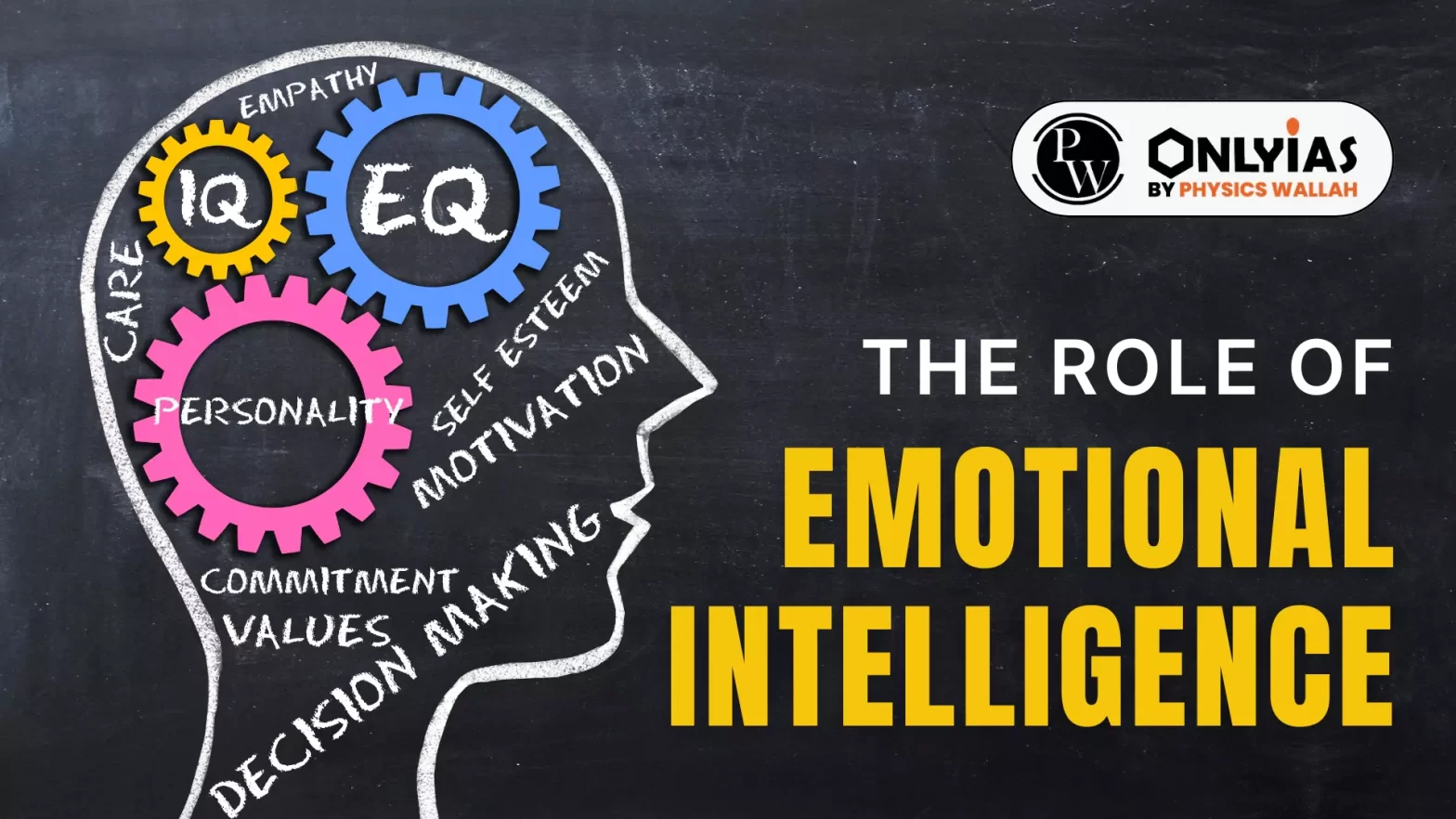Context
While the traditional academic curriculum focusses solely on technical expertise, there is a growing recognition among educators worldwide about the well-being and emotional health of students in higher education.
| Relevance For Mains: Role of Emotional Intelligence, Benefits of Emotional intelligence, and Emotional Quotient. |
Role of Emotional Intelligence in Personal and Professional Success
- Emotional Regulation and Success: Navigating through the complexities of personal and professional life in today’s bustling world, individuals’ capacity to comprehend and regulate their emotions significantly influences their success, happiness, and overall sense of fulfillment.
- Emotional Impact on Organizational Dynamics: Emotions dictate individuals’ interactions, communication styles, leadership approaches, and innovation efforts, ultimately contributing to organizational success and cultivating a positive work environment.
- Frequently, behavior stems from emotions.
- Navigating Emotions for Better Decisions: Emotions often fail as reliable guides in challenging situations. Hence, identifying and processing them aids in making informed decisions, as feelings and needs are interconnected, understanding one facilitates comprehension of the other.
- Role of Feelings: Feelings serve as gateways to understanding health requirements, prompting individuals to take suitable actions and fostering personal growth and healing.
- Lack of Emotional Awareness: Without emotional awareness, individuals risk being oblivious to their own needs, potentially resulting in indecision or emotional outbursts. This challenge is prevalent in both corporate and educational settings today.
Enroll now for UPSC Online Course
Impact of Emotional Intelligence in Workplace
- Emotional Intelligence in Workplace: In the workplace, a blend of self-awareness, emotional intelligence, proficient communication, and a nurturing work atmosphere stands as imperative.
- By adopting these approaches, organizations can cultivate a culture that empowers employees to effectively handle their emotions, resulting in heightened productivity, job contentment, and overall welfare.
- Correlation with Job Satisfaction: Emotional intelligence positively correlates with job satisfaction. Employees with higher emotional intelligence are more satisfied with their jobs, as it fosters purpose, belonging and commitment.
- Highly emotionally intelligent employees excel in interpersonal relationships, conflict resolution, and adaptability, while leaders with emotional intelligence inspire trust, motivate teams, and foster a positive work environment.
- Enhancing Workplace Performance: By promoting emotional well-being, organizations optimize employee performance and achieve better business outcomes.
- Organizational Strategies: Recognising the importance of emotional well-being, organisations implement initiatives to support employees’ mental health be it wellness programmes, counselling services or flexible work arrangements.
- Promoting Workforce Health and Resilience: Stress-reducing activities, workload management, work-life balance and emotional validation can reduce absenteeism, turnover and healthcare costs, promoting a healthier and more resilient workforce.
Also Read: Occupational Safety And Health (OSH) Report – By ILO
![]() 6 May 2024
6 May 2024

